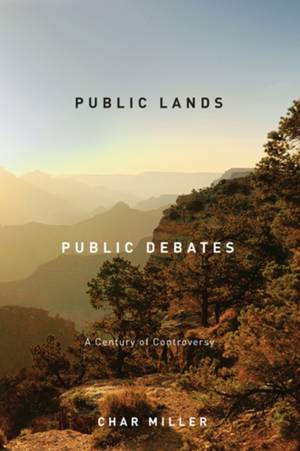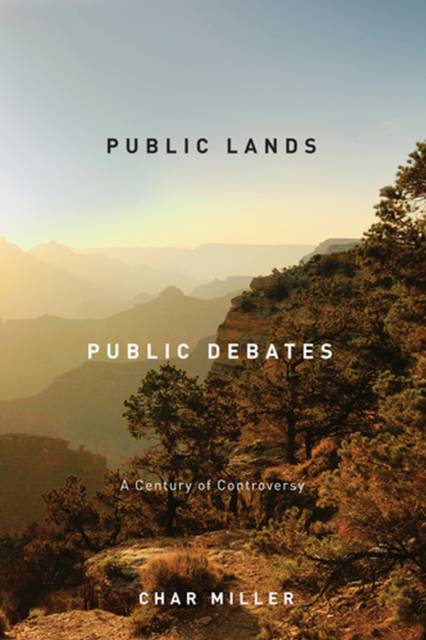
Bedankt voor het vertrouwen het afgelopen jaar! Om jou te bedanken bieden we GRATIS verzending (in België) aan op alles gedurende de hele maand januari.
- Afhalen na 1 uur in een winkel met voorraad
- In januari gratis thuislevering in België
- Ruim aanbod met 7 miljoen producten
Bedankt voor het vertrouwen het afgelopen jaar! Om jou te bedanken bieden we GRATIS verzending (in België) aan op alles gedurende de hele maand januari.
- Afhalen na 1 uur in een winkel met voorraad
- In januari gratis thuislevering in België
- Ruim aanbod met 7 miljoen producten
Zoeken
€ 33,95
+ 67 punten
Omschrijving
The subject of historic struggle and contemporary dispute, public lands in the United States are treasured spaces. In Public Lands, Public Debates, environmental historian Char Miller explores the history of conservation thinking and the development of a government agency with stewardship at its mission. Owned in common, our national forests, monuments, parks, and preserves are funded through federal tax receipts, making these public lands national in scope and significance. Their controversial histories demonstrate their vulnerability to shifting tides of public opinion, alterations in fiscal support, and overlapping authorities for their management--including federal, state, and local mandates, as well as critical tribal prerogatives and military claims. Miller takes the Forest Service as a gauge of the broader debates in which Americans have engaged since the late nineteenth century. In nineteen essays, he examines critical moments of public and private negotiation to help explain the particular, and occasionally peculiar, tensions that have shaped the administration of public lands in the United States. "Watching democracy at work can be bewildering, even frustrating, but the only way individuals and organizations can sift through the often messy business of public deliberation is to deliberate..."
--Char Miller, from the introduction
Specificaties
Betrokkenen
- Auteur(s):
- Uitgeverij:
Inhoud
- Aantal bladzijden:
- 176
- Taal:
- Engels
Eigenschappen
- Productcode (EAN):
- 9780870716591
- Verschijningsdatum:
- 1/04/2012
- Uitvoering:
- Paperback
- Formaat:
- Trade paperback (VS)
- Afmetingen:
- 150 mm x 226 mm
- Gewicht:
- 272 g

Alleen bij Standaard Boekhandel
+ 67 punten op je klantenkaart van Standaard Boekhandel
Beoordelingen
We publiceren alleen reviews die voldoen aan de voorwaarden voor reviews. Bekijk onze voorwaarden voor reviews.









